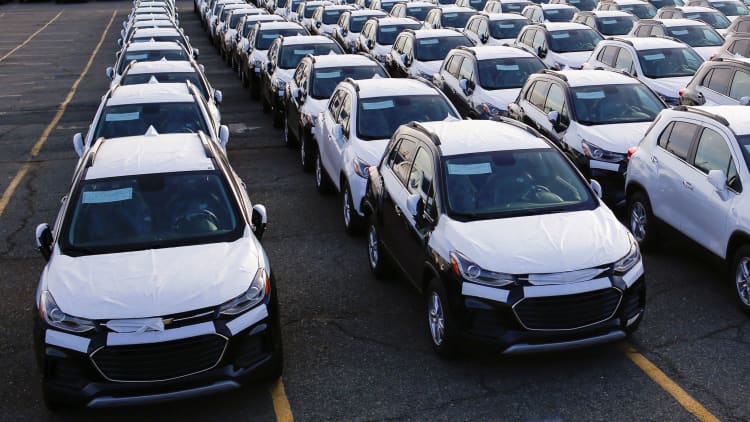
A trade war between the United States and Europe is coming and the fallout could tip Germany into recession, according to analysts at German lender Commerzbank.
EU leaders have now agreed to negotiate fresh trade arrangements with Washington but have restricted the talks to industrial goods only. That scope of debate is likely to irk President Donald Trump who is under pressure from Congress to win access to EU agriculture markets.
In February, Trump said he would impose tariffs on cars imported from the European Union if U.S. talks with the bloc can't produce a new deal. The EU has since threatened to tax 20 billion euros ($22 billion) worth of U.S. goods.
Both sides have cautiously hung on to existing agreements, promising to take no action until talks are concluded.
In a research report Friday, analysts at Commerzbank said the chances of a trade deal that satisfied both European leaders and U.S. lawmakers looked slim. It noted that France, holding a powerful voice in the corridors of Brussels, had already erected a serious barrier.
"President (Emmanuel) Macron has already voted against opening negotiations with the U.S. because the U.S. is no longer participating in the 2015 Paris Climate Agreement," noted Commerzbank.
The bank said on the other side of the ledger, U.S. Congress has made it clear that it will not rubberstamp any agreement that excludes agriculture — a tricky proposition given many EU nations fiercely protect prices paid to their farmers.
"It is therefore likely that Donald Trump will announce the imposition of duties — probably at rates of 25% — on imports of autos and auto parts from the EU," said Commerzbank.
Official German statistics supplemented by the bank's own research show that in 2018, the United States was the top export destination for German cars, accounting for about 12% of the total with a value of 27 billion euros of parts or finished vehicles.
The bank estimated that a Trump-ordered tariff increase of 25 percentage points on EU auto imports would slash that figure for Germany down to around 14 billion euros per annum.
When factoring in how much of that export figure is actual German "added value," the bank estimated that total economic output for the country could fall by around 0.25 percentage points.
"All the more dangerous in a situation where the German economy is only just managing to avoid a recession," it read.
The German economy stagnated in the fourth quarter of 2018 after contracting 0.2% in the July-September period, which was the first time GDP (gross domestic product) had shrank since 2015.
A separate note Friday from French bank Credit Agricole noted that Germany accounts for almost three out of every four European cars shipped to the United States.


